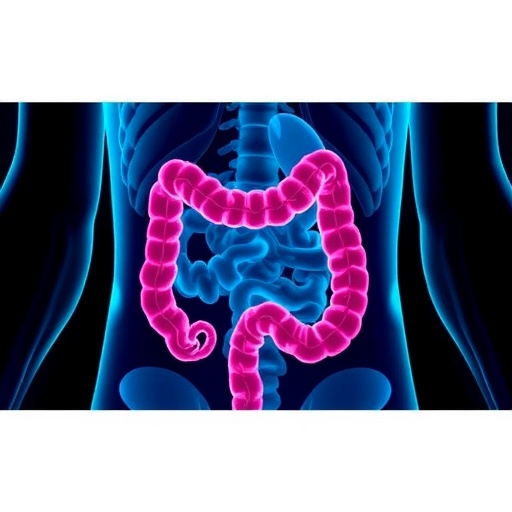In a groundbreaking development that could reshape the therapeutic landscape for metastatic colorectal cancer (mCRC), researchers have unveiled compelling results from a phase I clinical trial investigating the safety and dosing parameters of OMT-110. This novel drug candidate, repurposed for advanced and refractory colorectal malignancies, has demonstrated a promising safety profile and potential efficacy, igniting hopes for a new systemic treatment pathway in a patient population with otherwise limited options.
The phase I trial, heralded as the first-in-human dose escalation study for OMT-110 in mCRC, enrolled fourteen patients over the age of twenty who had exhausted standard treatments. The study design meticulously evaluated escalating doses of OMT-110, administered subcutaneously in cycles of 21 days on treatment followed by a seven-day break. This regimen was sustained until patients exhibited either tumor progression, unacceptable toxicity, or voluntary withdrawal, ensuring rigorous monitoring of the drug’s tolerability over an extended period.
Safety assessment was a cornerstone of the trial, utilizing the National Cancer Institute Common Terminology Criteria for Adverse Events version 4.03 to rigorously grade toxicities. Among the participants, a total of fifty-four adverse events were recorded, overwhelmingly of low-grade severity (grade 1 or 2). Notably, two serious adverse events were documented; however, thorough evaluation attributed these incidents as unrelated or probably unrelated to OMT-110 administration. This outcome suggests an encouraging safety margin that may allow for higher dosing and prolonged administration in future studies.
Pharmacokinetic analyses provided key insights into OMT-110’s behavior within the human body. Measurements before and after dosing revealed no significant drug accumulation after repeated cycles, a finding that underscores the drug’s favorable metabolic profile. Absence of accumulation reduces risks of unexpected toxicities and supports feasibility of sustained treatment schedules—a critical factor when managing advanced cancers with continuous systemic therapy.
Efficacy evaluations incorporated advanced imaging modalities, including abdominopelvic and chest computed tomography scans complemented by ^18F-fluorodeoxyglucose positron emission tomography/CT. These comprehensive radiological assessments adhered to the Response Evaluation Criteria in Solid Tumors (RECIST) version 1.1, providing a standardized framework to gauge tumor response. While this phase I study primarily focused on safety and dosing, initial pharmacodynamic signals hinted at therapeutic activity, which will be elaborated upon in subsequent trial phases.
After exhaustive dose escalation, 100 mg daily emerged as the recommended dose for phase II trials. This dosing recommendation is grounded not only in the manageable adverse event profile but also in pharmacodynamic markers and preliminary efficacy signals observed throughout the study period. A 28-day treatment cycle incorporating three weeks of active dosing followed by a one-week drug holiday appears to optimize the balance between therapeutic pressure on tumor cells and patient tolerability.
OMT-110’s unique mechanism, thought to involve immunomodulatory effects, places it at the cutting edge of cancer pharmacotherapy. Unlike traditional chemotherapeutics which directly target tumor proliferation pathways, immunomodulators harness the patient’s immune system, potentially leading to durable and adaptive anti-cancer responses. This novel angle is especially pertinent for mCRC patients who have failed to respond to conventional regimens, highlighting the urgency for innovative therapeutic modalities.
The trial’s rigor was further emphasized by stringent eligibility criteria ensuring enrollment of refractory mCRC patients with advanced disease states. Such inclusion criteria target a population with substantial unmet medical needs — individuals who often face limited therapeutic alternatives and poor prognoses. By navigating the challenges in this patient subset, the study underscores the trial’s translational significance and potential public health impact.
An intriguing aspect of the study was the pharmacodynamic monitoring through integrated imaging techniques combined with metabolic activity assessments via FDG-PET/CT. This convergence of functional and anatomical imaging not only offers real-time insights into tumor biology but may also serve as predictive biomarkers for therapeutic responsiveness. The development of such integrative diagnostic tools aligns with the broader movement towards personalized oncology.
In conclusion, this phase I investigation of OMT-110 represents a vital stepping stone towards novel systemic therapies for metastatic colorectal cancer. The demonstrated safety and tolerability, coupled with encouraging early efficacy signals and absence of pharmacokinetic accumulation, position OMT-110 as a viable candidate for more extensive clinical evaluation. These findings beckon continued research efforts in phase II trials to verify efficacy outcomes and further elucidate mechanistic underpinnings.
Beyond its immediate scientific contributions, the study also exemplifies the strategic repurposing of existing compounds—a practice increasingly valued for its cost-effectiveness and acceleration of drug development timelines. By leveraging prior pharmacological knowledge, researchers maximize resource utilization while expediting the delivery of new treatment options to patients in dire need.
As mCRC remains a significant global health burden with high mortality rates and limited effective treatments in refractory stages, advances such as OMT-110 offer a beacon of hope. Future research will likely explore combination regimens incorporating this agent alongside other immunotherapies or targeted drugs, potentially unlocking synergistic benefits that could redefine clinical outcomes.
The ongoing evaluation of OMT-110’s immunomodulatory properties may also illuminate broader oncological applications beyond colorectal cancer, given the increasing recognition of the tumor microenvironment’s role across various malignancies. Such versatility may position OMT-110 as a multi-indication therapeutic, expanding its relevance in oncology.
Ultimately, the scientific community and affected patients alike will watch closely as subsequent clinical trial phases unfold, with anticipation mounting around the potential of OMT-110 to transform standards of care for metastatic colorectal cancer. The journey from phase I to eventual regulatory approval is arduous but vital, and studies like this are foundational pillars that bring new hope to oncology’s forefront.
—
Subject of Research:
The phase I clinical evaluation of OMT-110’s safety, tolerability, pharmacokinetics, and optimal dosing in patients with refractory metastatic colorectal cancer.
Article Title:
Phase I study of the safety, tolerability, and potential therapeutic dose of OMT-110 for patients with refractory metastatic Colorectal Cancer
Article References:
Jeon, Y., Jung, M., Jeong, B. et al. Phase I study of the safety, tolerability, and potential therapeutic dose of OMT-110 for patients with refractory metastatic Colorectal Cancer. BMC Cancer 25, 937 (2025). https://doi.org/10.1186/s12885-025-14351-1
Image Credits:
Scienmag.com
DOI:
https://doi.org/10.1186/s12885-025-14351-1




